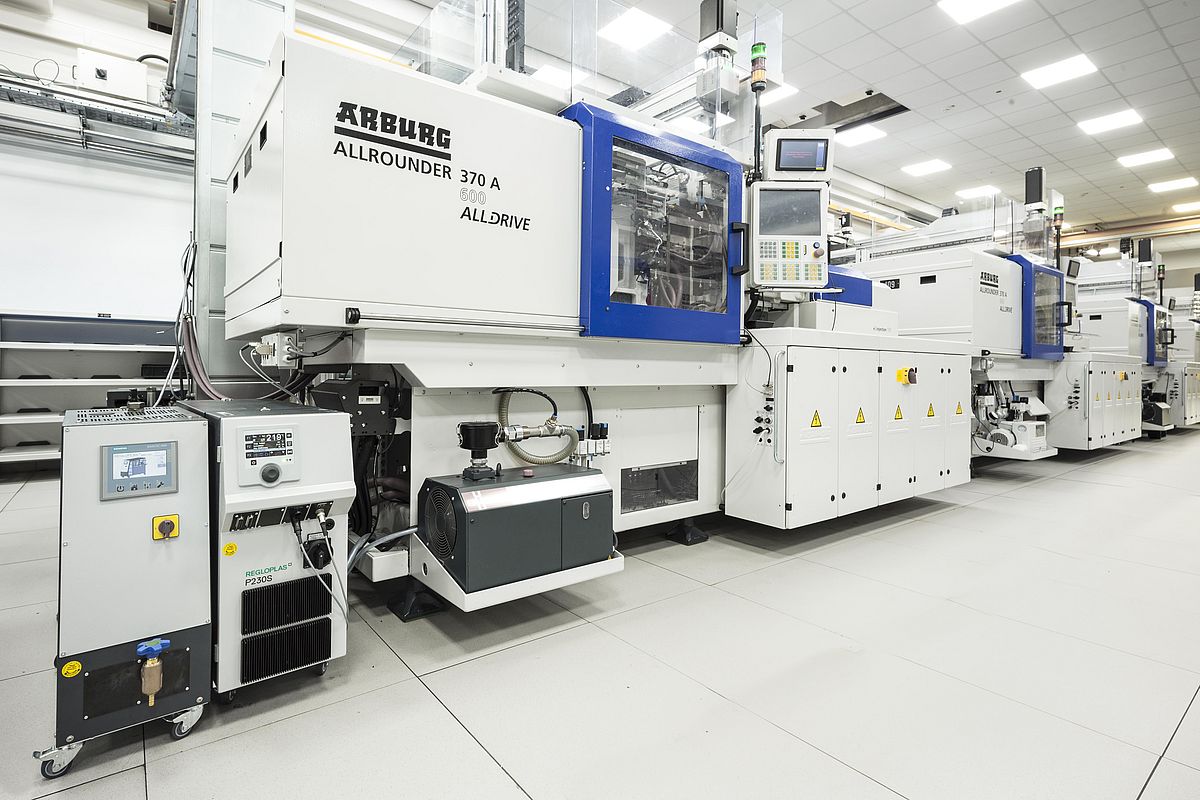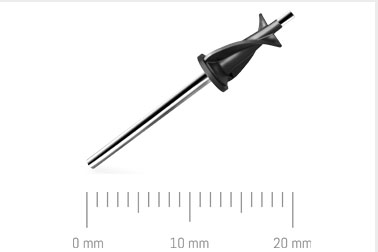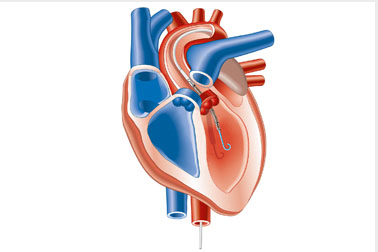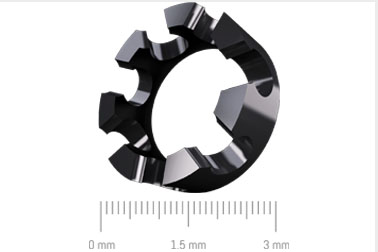Medical Implants
Regloplas temperature control with water as a substitute for oil up to 230 °C for high-performance thermoplastics
A business relationship dating back more than 20 years exists between Horst Scholz GmbH & Co. KG, one of the leading German companies with high-end performance in the modelling of plastic, and Regloplas AG. Thanks to the much better physical temperature regulation properties of water, Scholz wanted to change their heat transfer medium in the temperature control process from oil to water. The Regloplas P230S pressurised-water temperature control unit developed by Regloplas offers ideal conditions, in a temperature range up to 230 °C, to replace temperature control with oil and accordingly minimise the risk of contamination in the manufacture of medical devices.
Semi-crystalline high-performance plastics, such as PEEK and PPS, which are high temperature-resistant thermoplastics, are nowadays used in high-precision applications in the fields of industrial components, medical technology, diagnostics and the automotive industry. Thanks to the high strength and durability of the plastic, these plastics are increasingly used as metal substitutes in the manufacture of medical implants.

The temperature control process for plastics with melting points above 300 °C and mould temperatures greater than 200 °C was, until now, determined by temperature control units with oil as the heat transfer medium. With the development of the high-precision Regloplas P230S temperature control unit with a patented, integrated pressuriser, it is now possible to carry out the temperature control of injection moulding machines, on which high-quality plastics are injected, with water as the heat transfer medium. Compared with oil, water has double the specific heat capacity (water: 4.18 kJ/(kg·K), oil: 1.9 kJ/(kg·K) [1]), and at least double the heat transfer coefficient (water: 2300-3500 W/(m2·K), oil: 1100-1700 W/(m2·K) [1]. Another advantage is the low viscosity over the entire range of application compared with oil. With a system pressure of approx. 30 bar, water has the feature of becoming less viscous. As a heat transfer medium, water also offers many advantages in its application: Alongside at least double the heat transfer coefficient, it also offers a reduction of oil-dependent contamination. There is no evaporation of oil, which means higher purity in the machine as well as a significantly minimised risk of injury to the machine personnel in the event of leaking heat transfer medium.
The mould sizes in production at Scholz move in a range of 50-250 kg. An oil temperature of 236 °C must be configured in the temperature control unit in the case of a mould temperature of 220 °C with an oil temperature control unit, whereas a flow temperature of just 224 °C is needed in the device with water as the heat medium. The temperature control process is thereby shortened, which is especially evident in the heat-up time that is almost halved.
High-performance plastics such as PEEK are attractive alternatives to metal. Scholz uses the material for a wide range of applications. In the field of medical technology, Scholz produces rotors made of PEEK material for use in heart pumps. Due to the purity in the production process, the Regloplas temperature control unit and the temperature control medium of water are trusted instead of oil. The Regloplas P230S temperature control unit is used in this application, which ideally covers the purity requirements in production.
High miniaturisation and components, which are directly used in the bloodstream, belong to the highest risk class. With a blade profile wall thickness of 200 µm and rotations of 30,000-50,000 U/min, extremely high standards for the durability of the rotor are required (Figure 2). PEEK has various advantages in this case, such as its very low weight, high chemical resistance, simple sterilisation, biocompatibility and high specific strength.

Thanks to the introduction of the Regloplas P230S pressurised-water temperature control unit, PEEK can now be injected into tools as a material and tempered with water as the heat medium. Complying with the required purity in the manufacturing process can thus be made significantly easier. Temperature control with oil can often lead to oil deposits throughout the entire machine area and make additional purification steps necessary. Maintenance cycles due to contamination in the machine are also reduced.

As a temperature control medium, water offers another major advantage thanks to more than double the heat transfer of oil-based temperature control, resulting in extremely precise temperature regulation that contributes to a stable production process.
The rotor made of PEEK is used in a heart pump manufactured by Abiomed; with an outside diameter of just 4 mm, this is one of the smallest support systems in the world.
The following component is also used in medical technology.
Another example of the use of the REGLOPLAS P230S pressurised-water temperature control unit is this ball bearing cage (Figure 4), which is also injected into a single mould from the material PEEK with 7 radially aligned sliders. The outside diameter measures 2.3 mm and with a weight of 0.0008 g it is the lightest injection-moulded part currently manufactured by Scholz. The ball bearing cage is also used in the heart pump by Abiomed. A small component in a high-performance application.

Extreme conditions of over 200°C and more than 30 bar of system pressure prevail in the pressurised-water temperature control unit during operation. Under these conditions, salty water causes accelerated corrosion. Reactions in the water are accelerated by the high temperature. Chloride in the temperature control medium attacks the passive layer of the metal surface, which in turn leads to increased corrosion.
Water treatment is essential for applications at higher water temperatures. This is generally the case at water temperatures above 180 °C. At temperatures above 200 °C, the use of treated water is vital. Contamination and calcification of the mould and device result in poorer performance through the reduction of heat transfer between the mould/heater and the temperature control medium. Regloplas waterCare is a mobile water treatment system that provides water suitable for systems. The water is automatically fully desalinated and then manually treated with the appropriate anti-corrosive agent. Through additional filters, dirt particles - such as those from the mould - are also efficiently filtered out of the system circuit. Thanks to Regloplas waterCare, the overall cost of maintenance and cleaning of the temperature control units is greatly reduced.
With its newest development in pressurised-water temperature control units, Regloplas offers standard products for special customer requirements.
The advantages of the Regloplas P230S pressurised-water temperature control unit with water as the heat transfer medium are [1]:
- Higher cleanliness in production, such as in clean rooms or for injection-moulded parts for medical technology, less contamination and consequently less cleaning and maintenance, as well as a better utilisation capacity of the machine
- No leaking oil or oil vapours in the production process
- The specific heat capacity (denotes the property of how much heat energy a heat transfer medium can transport) of water is greater by a factor of 2 compared with heat transfer oils
- The heating time with water is almost half that of oil-based temperature control
- The heat transfer coefficient (measure for the transfer of heat energy from the wall to the heat transfer medium) with oil reaches just under half the value of water
- Water has a lower viscosity, and thus easy to pump
- Water cannot carbonise, which allows temperature control units with relatively high specific heating capacities to be built
- Water is not flammable, which offers greater safety compared with oil, because the possibility of inflammation does not exist
- Cost advantage with water compared with oil, as well as easy disposal and easy cleaning of the machines
- Lower risk of injury than with oil; the leakage of 200 °C hot oil can result in severe burns, whereas water relaxes promptly and thus cools down considerably
- The service life of oil as a temperature control medium is much shorter than water
- Replacing the injection moulds is easier with water as the heat transfer medium
We would like to thank Horst Scholz GmbH & Co. KG for this excellent collaboration. Specifically, we wish to thank the technical management assistant Mr Christian Schneider.
[1] Regloplas AG "Temperature Control by Means of Fluid Media"
[2] Regloplas AG "Regloplas P230S Temperature Control Unit"
[3] Photo Horst Scholz GmbH & Co. KG "Rotor for an implantable cardiac support system"
[4] Photo Horst Scholz GmbH & Co. KG "Heart pump by Abiomed"
[5] Horst Scholz GmbH & Co. KG "Medical technology brochure"
[6] Photo Horst Scholz GmbH & Co. KG "Ball bearing cage"
Regloplas AG
Regloplas AG is a family-owned company that has specialised in the development and production of intelligent temperature control systems with Swiss quality for more than 55 years. These ensure maximum process stability through exact control accuracy in the temperature ranges. Regloplas AG offers its customers worldwide complete temperature control solutions for highly sophisticated manufacturing processes and is thus a market leader.
https://www.regloplas.com
Horst Scholz GmbH & Co. KG
The owner-managed family business stands for values such as consistency, reliability, transparency and a sense of responsibility. The company has made a name for itself with highly specialised and precise injection moulded products for the fields of technical precision parts, gearing technology, microtechnology and medical technology. Horst Scholz GmbH & Co. KG distinguishes itself with outstanding product quality, which is primarily achieved through the use of high-performance injection moulding machines, as well as in-house mould-making and the availability of highly qualified employees.
www.scholz-htik.de
For more information please contact your local representative via the contact form.